Psychopathology: Schizophrenia, Depression, Eating Disorders Analysis
VerifiedAdded on 2023/02/02
|21
|1134
|80
Presentation
AI Summary
This presentation provides an overview of psychopathology, focusing on schizophrenia, depression, and eating disorders. It discusses the causes, symptoms, treatment, and management strategies for each condition. For schizophrenia, the presentation covers genetic inheritance, chemical imbalances in the brain, and environmental factors as potential causes, along with symptoms like delusions, hallucinations, and negative symptoms, and treatments including medications and psychosocial therapy. Regarding depression, the presentation explores life events, genetic factors, and prescribed medicines as causes, symptoms like irritability, loss of focus, and insomnia, and treatments such as psychotherapy and antidepressant medications. For eating disorders, biological, psychological, and environmental factors are examined as causes, with symptoms like chronic dieting and obsession with food contents, and treatments including medical care, nutritional guidance, and therapy. The presentation also includes a case scenario involving a patient with obsessive-compulsive disorder (OCD) and discusses management strategies. The presentation concludes by emphasizing the importance of early diagnosis and intervention in managing mental disorders.
1 out of 21
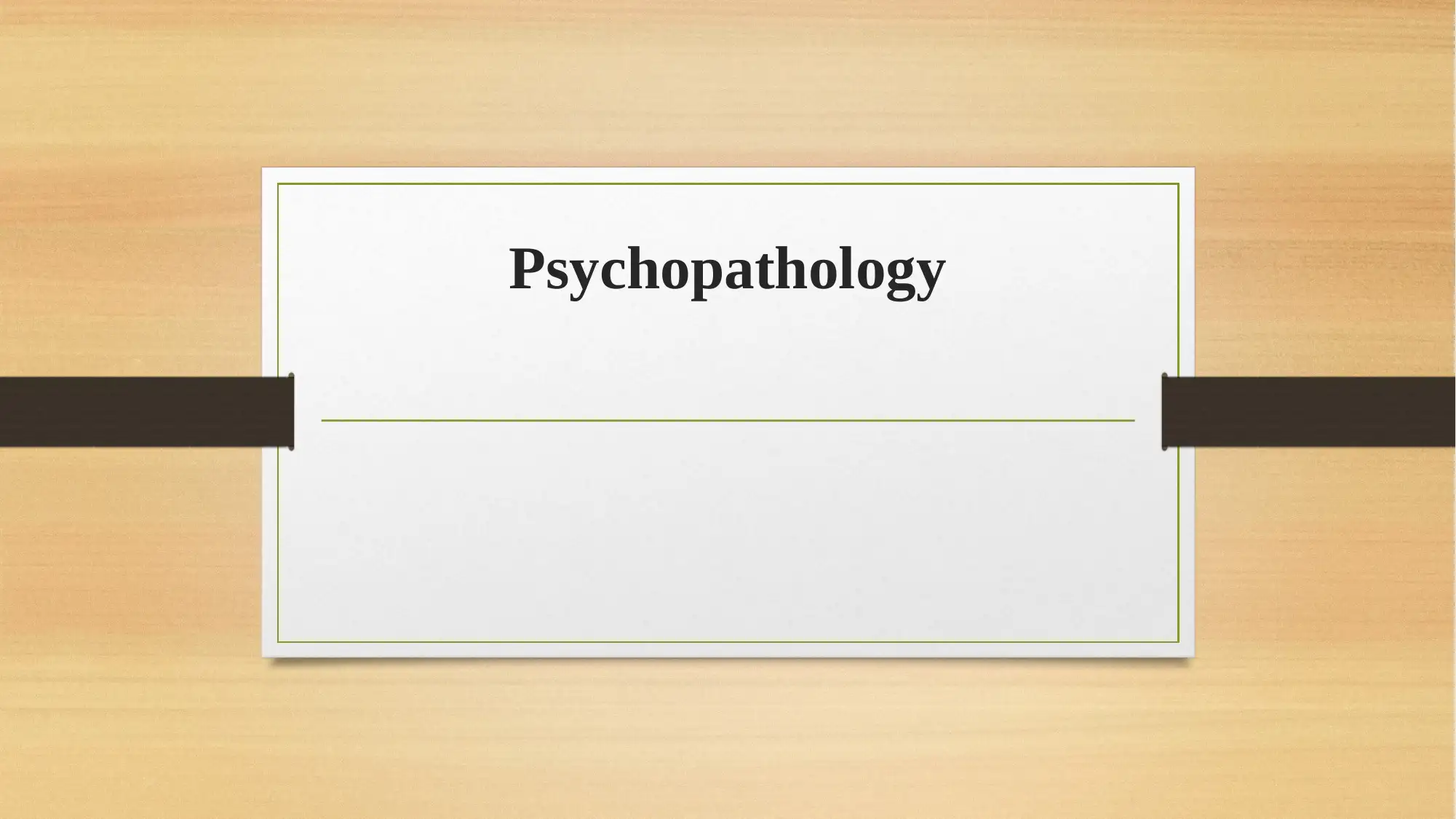
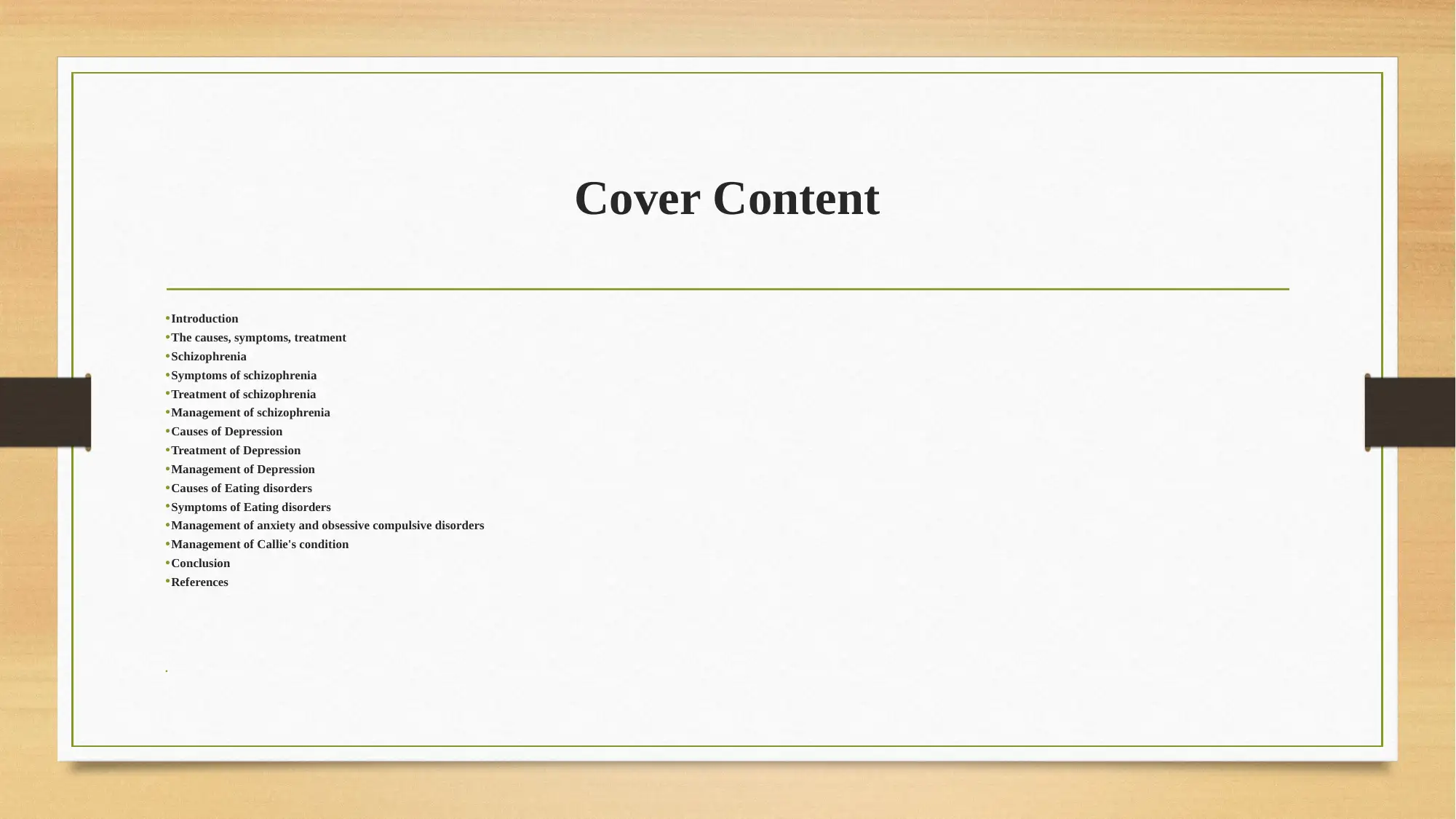
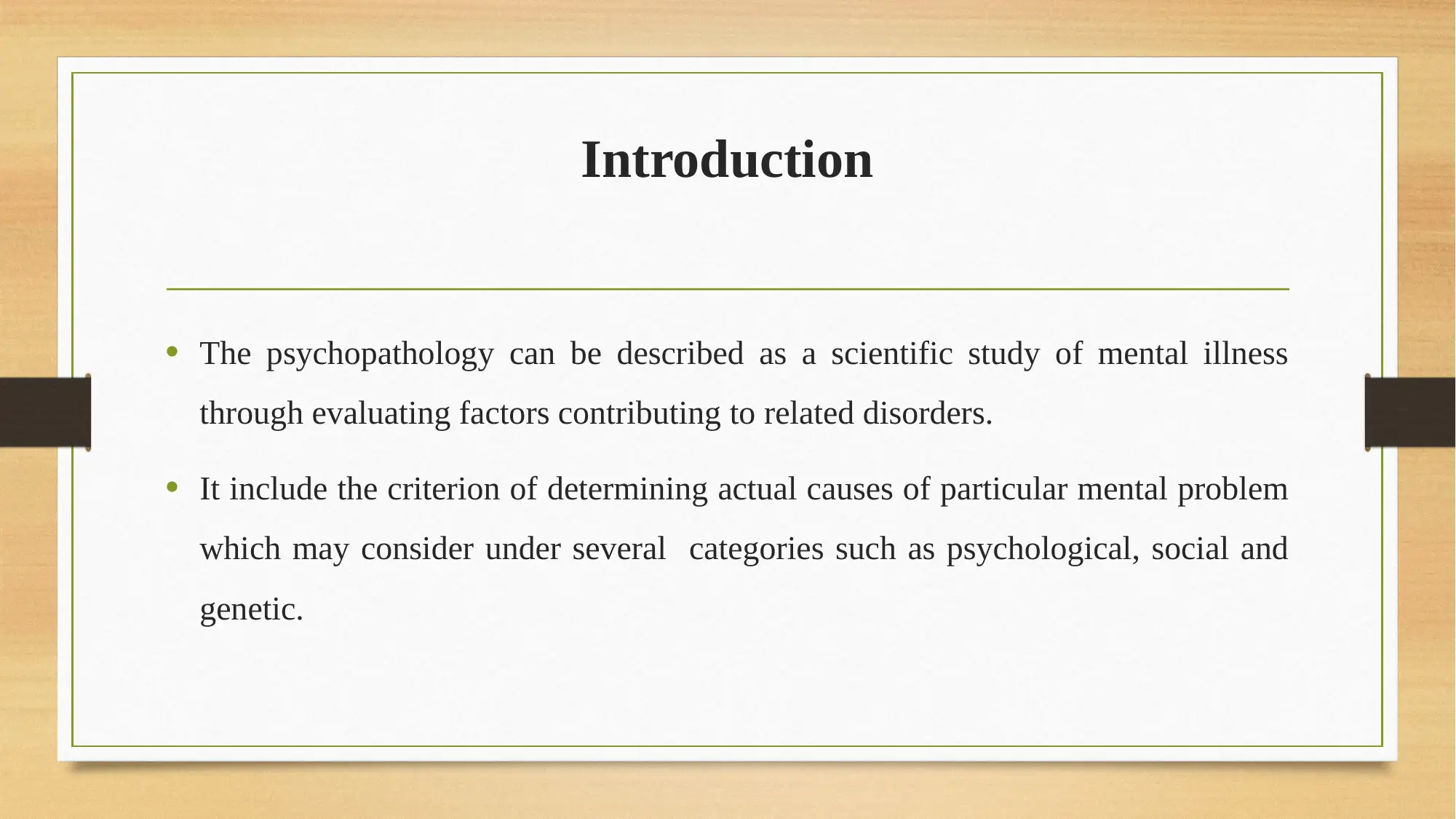

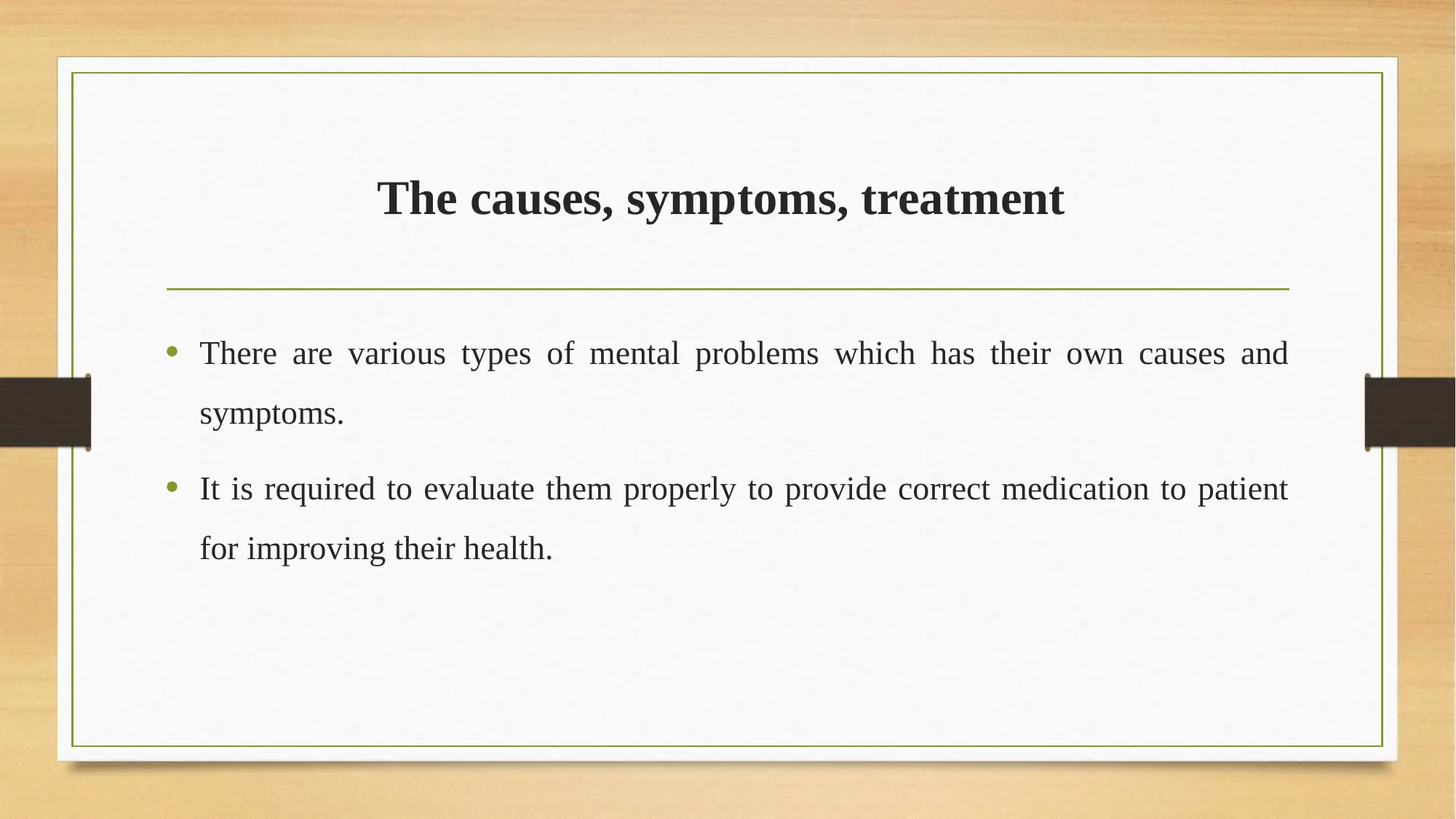
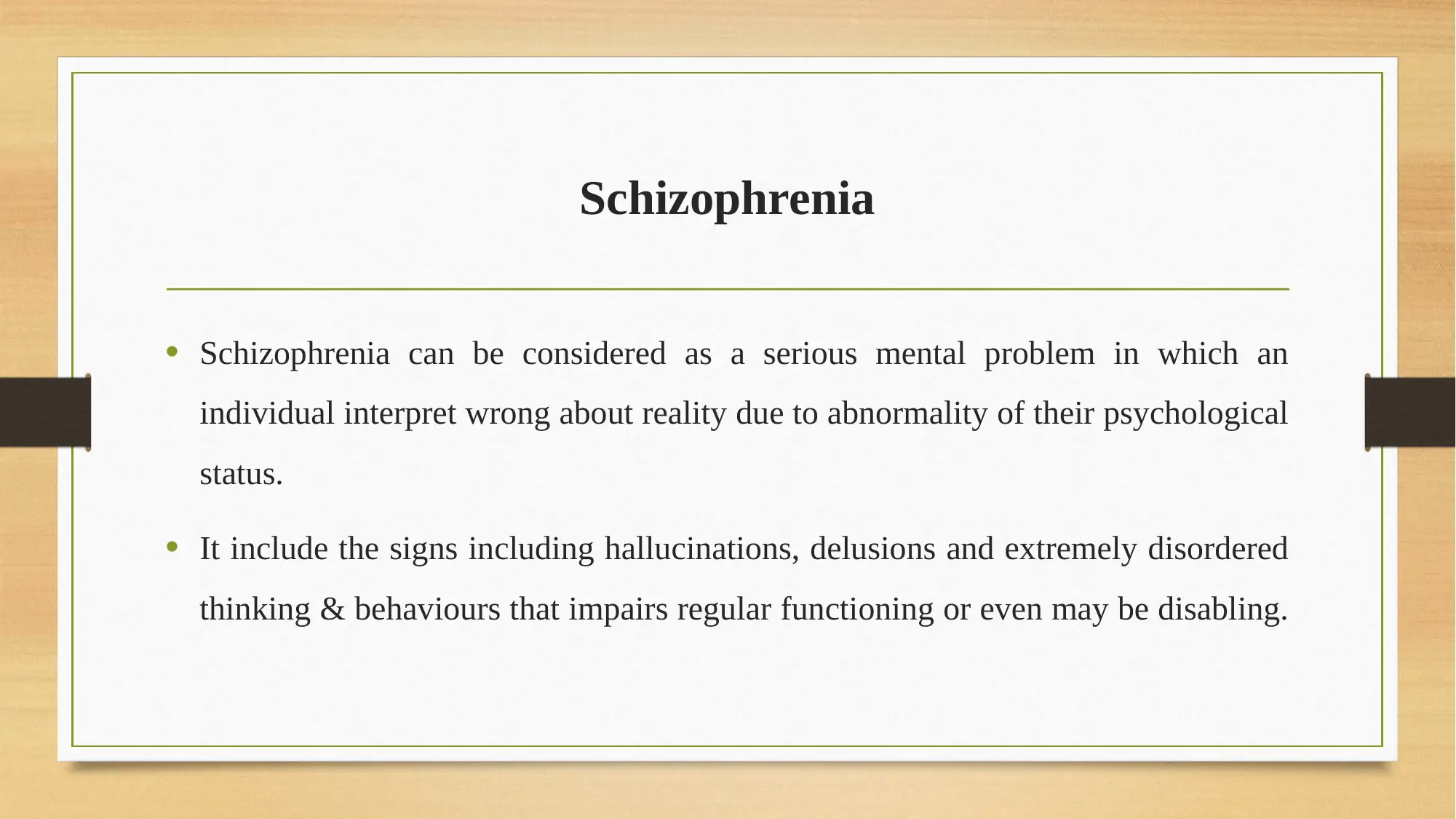
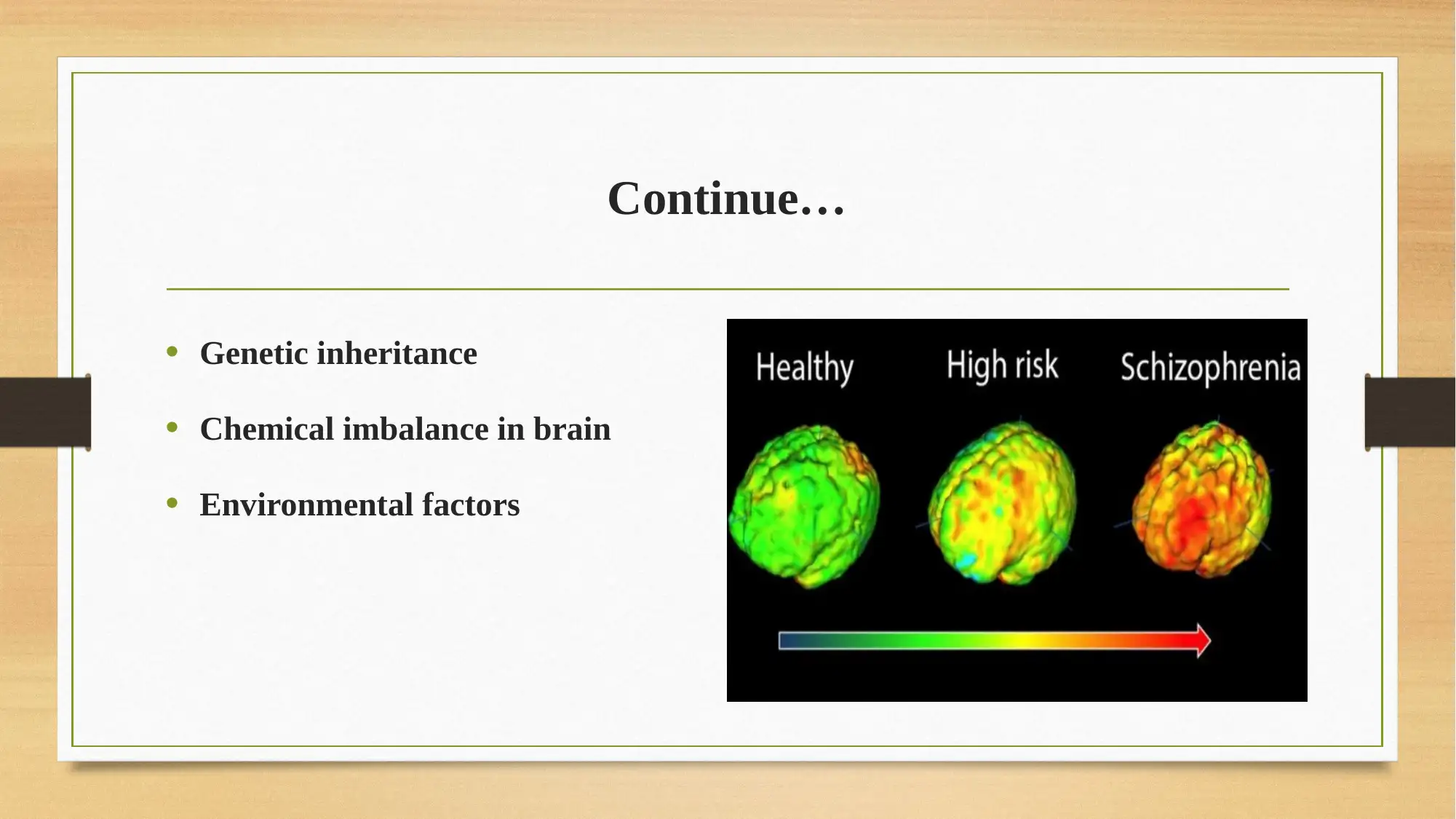
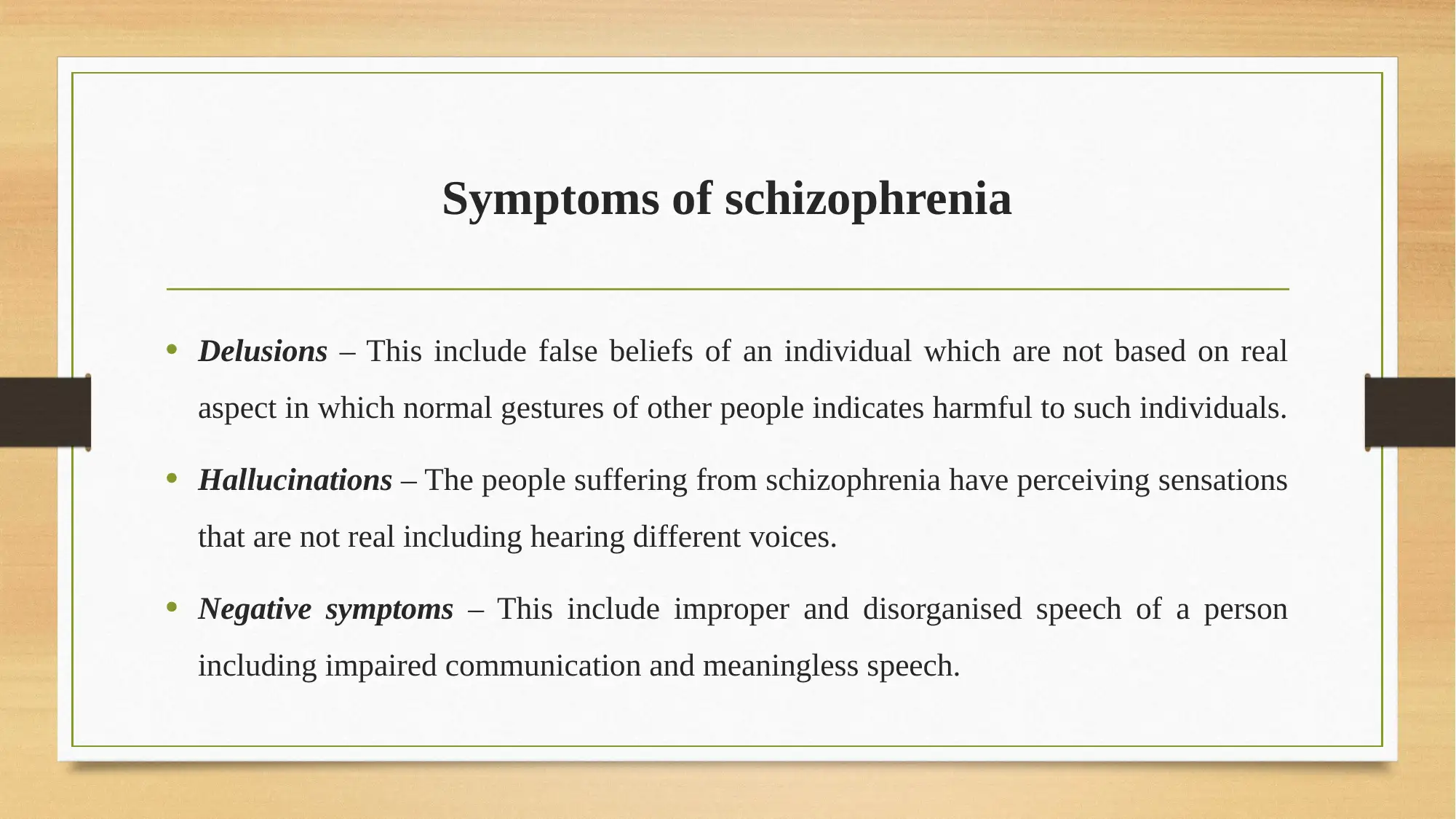
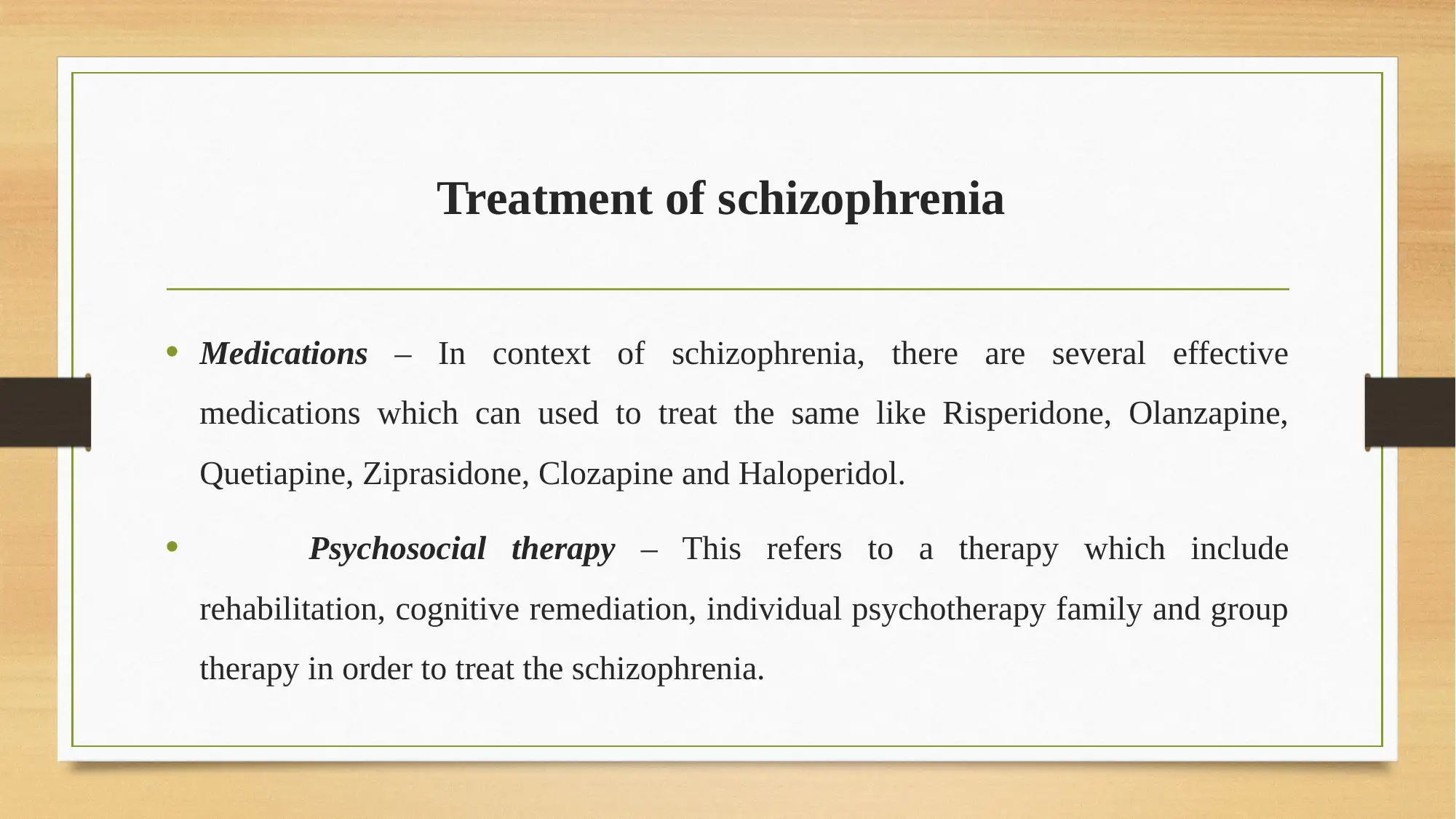
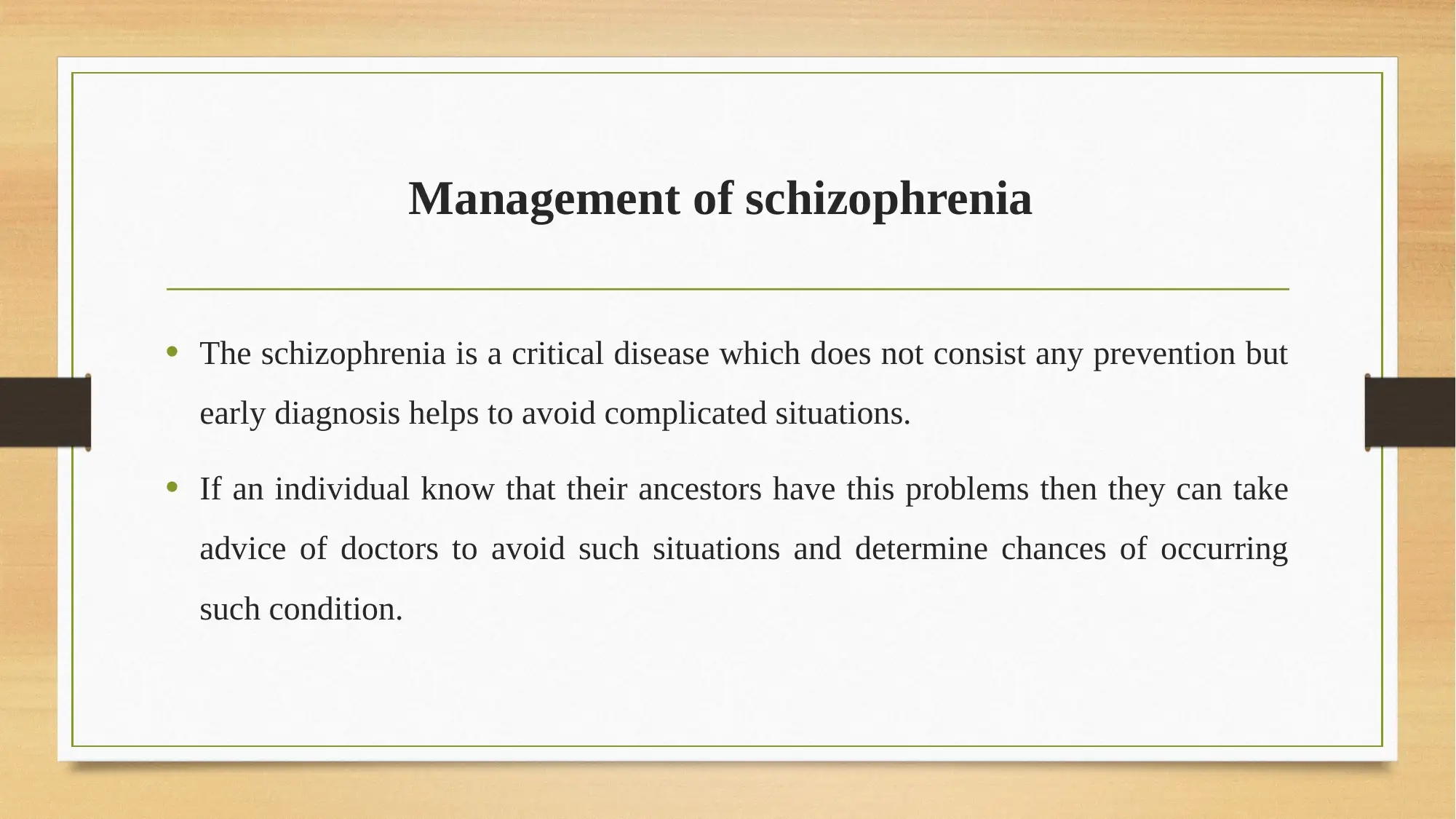
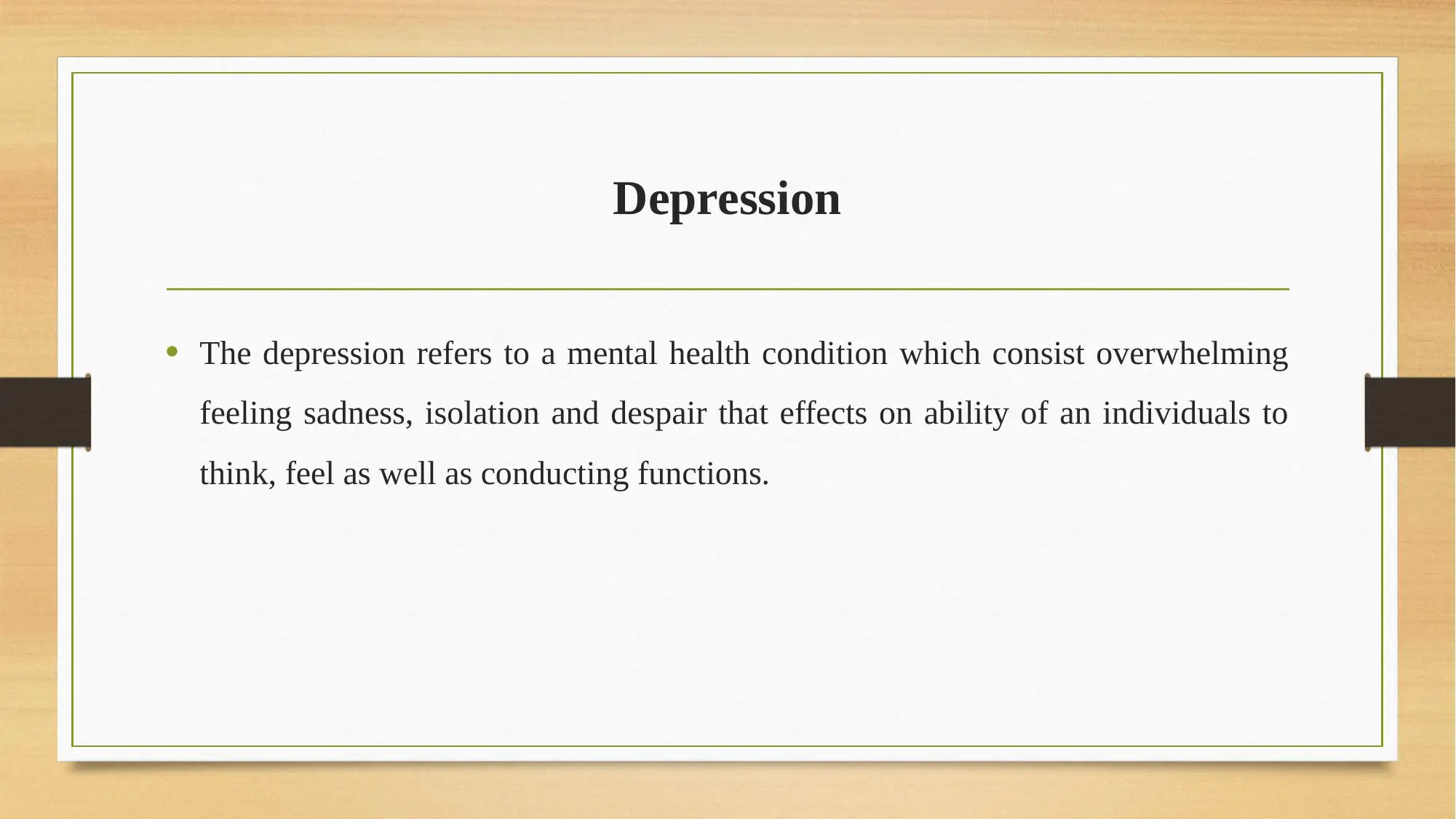
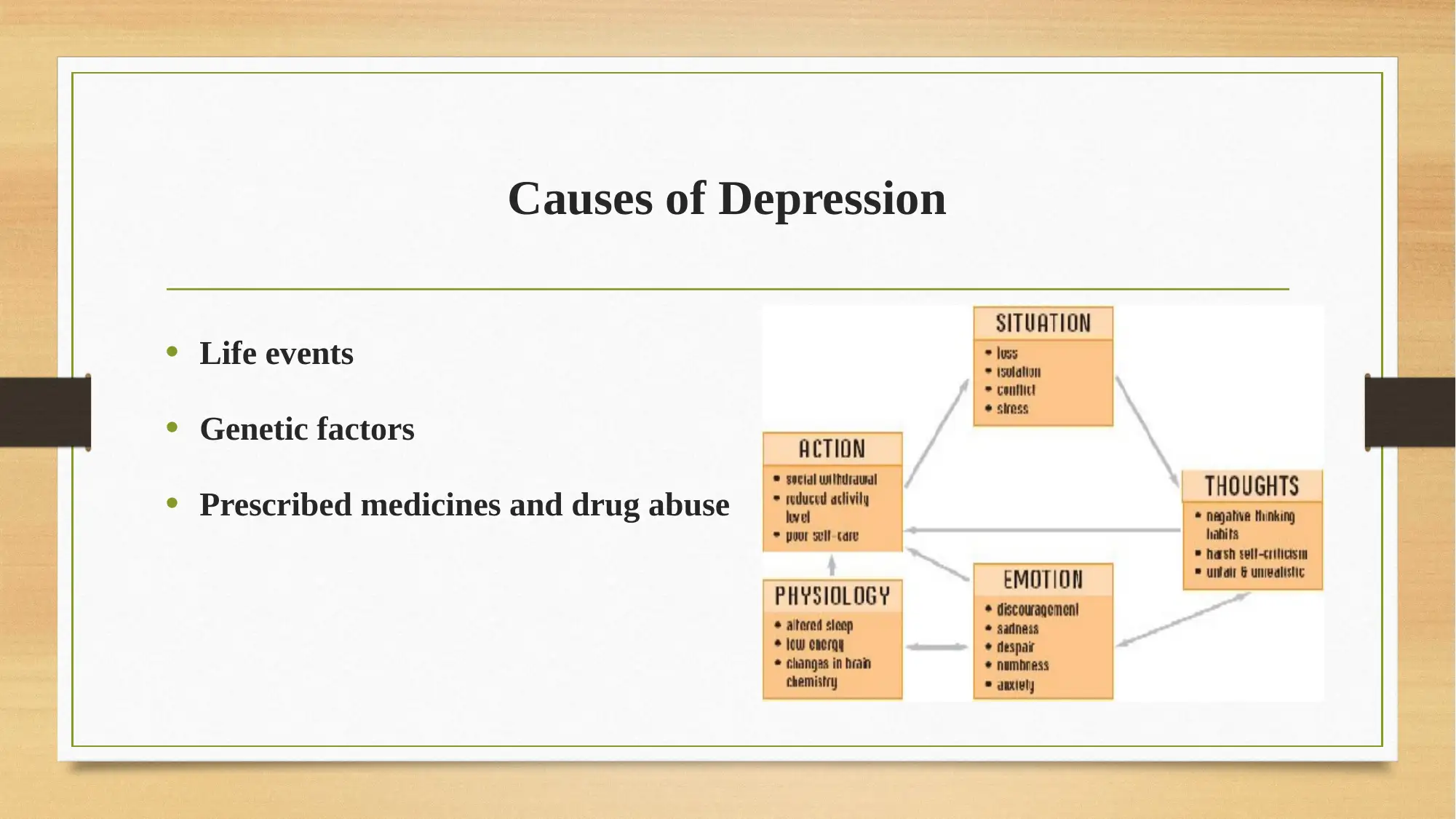
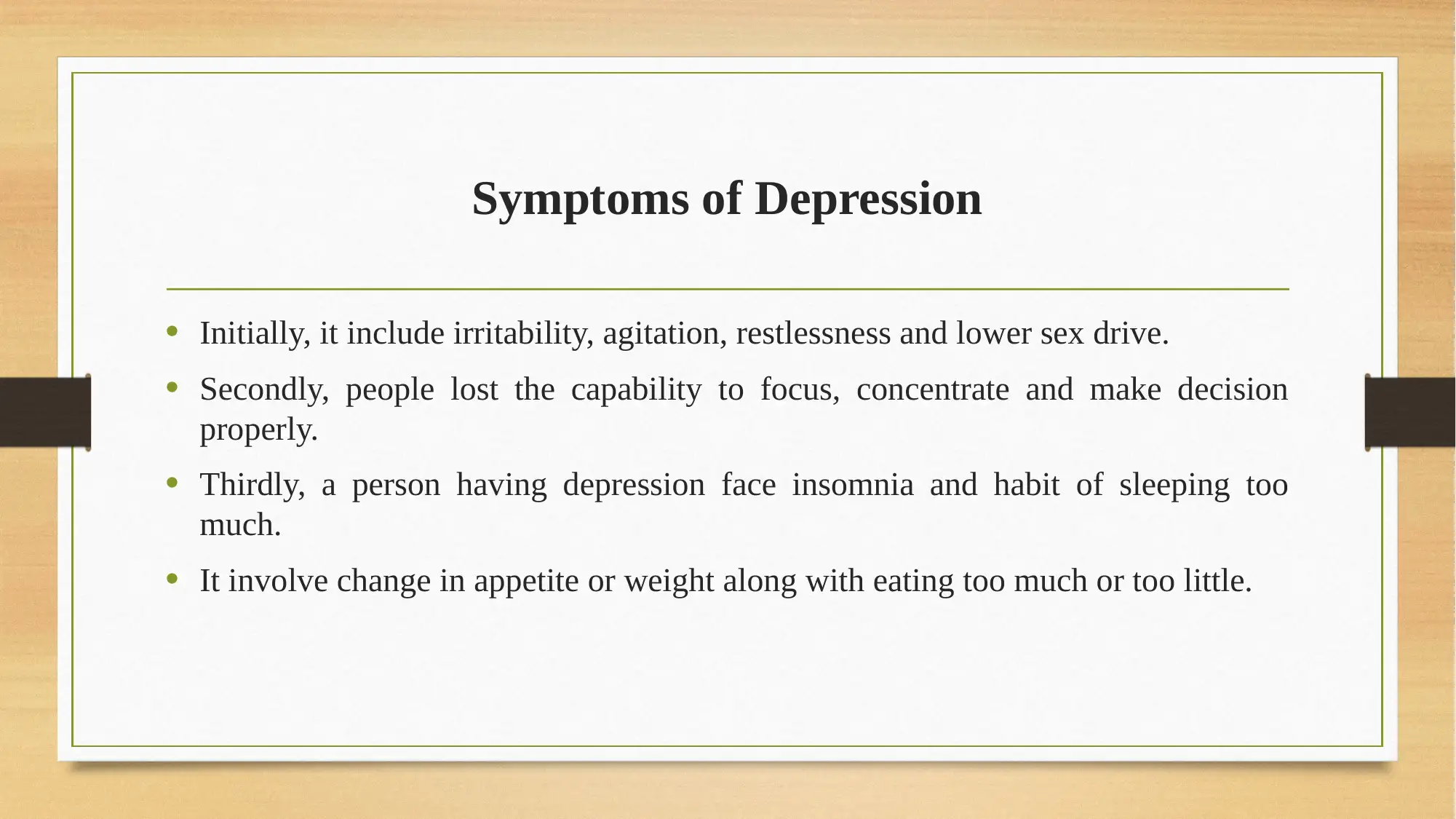






![[object Object]](/_next/static/media/star-bottom.7253800d.svg)